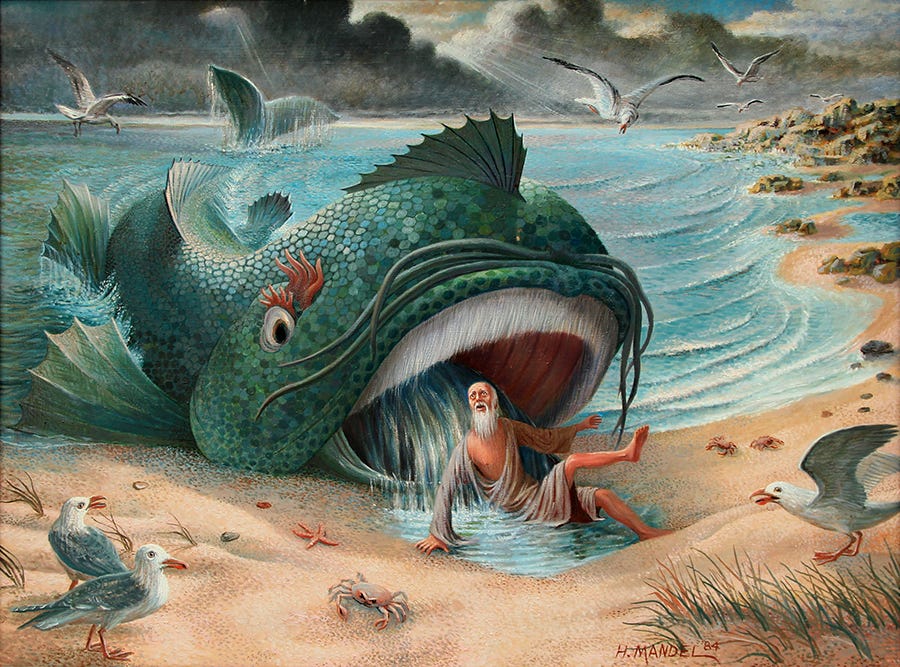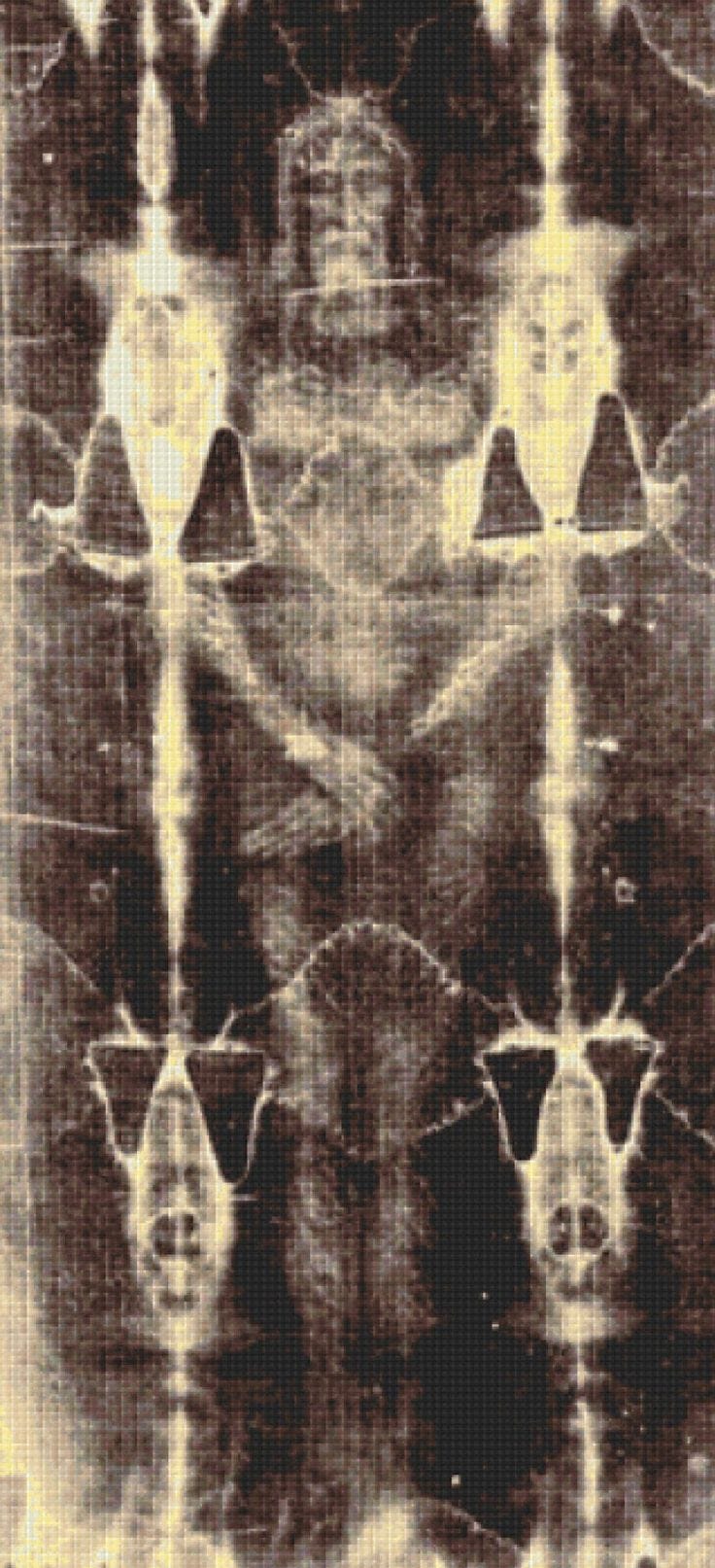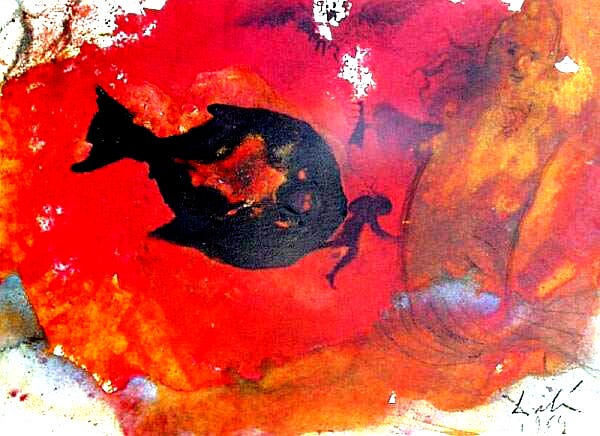An Easter Reflection
Adventures in Missing the Point
When I read about Jonah being “vomited out” by a fish I laugh. Not because I’m cynical about the story, but because that’s the response the story seeks to draw out from us. We are meant to laugh, to learn its truth through its irony. Bible readers used to share this sense of humor. But when Christianity met Western culture, the only way to speak the truth in that culture was with critical, scientific bona fides. As a result, Western Bible scholars have spent generations writing papers about the historical validity of Jonah as a defensive measure, to try to keep the Bible’s authority intact. Thus the point of the satirical and deeply ironic story of Jonah the anti-prophet has been lost. For the Western Christian, it became a litmus test of faith: you must believe a man can live in a fish for three days and survive. For the agnostic and atheist, Jonah’s story only strengthened their cynicism and ridicule of the faith. The main point of the story was lost.
Something similar happened when Easter met Western modernity. Although there is little serious debate about it anymore, some of us do still believe that Jesus was resurrected bodily from the grave. Such a thing cannot be reproduced in a laboratory. We don’t have a scientifically proven “Shroud of Turin” type artifact proving beyond the shadow of a doubt that Jesus died and rose again. So, many don’t take the story seriously, believing it, and with it, Christianity, belongs to the world of myth and legend.
But consider this: Easter is increasingly celebrated by non-Western peoples, even as fewer Westerners celebrate the religious holiday. While many in the West feel free from religious shackles when they forsake the celebration of Jesus’ life, death, and resurrection, those who had to break from the shackles of Western colonialism find their freedom enhanced by following this Semitic man as their spiritual leader and guide. Even modern-day Persians, who since Biblical times had issues with the Jewish people and today have little opportunity to read the Bible or to visit a church in Iran, report dreams of the risen Jesus inviting them into a relationship with him. Through the common Christian baptism of diverse people, Jesus calls people in Rwanda to peace and reconciliation in the aftermath of tribal genocide. His followers in Latin America turn the other cheek as they face the continuing violence of narco-trafficantes. Chinese Christians risk life and limb to read the stories of Jesus and Jonah together in underground house churches. If this isn’t resurrection, I don’t know what is.
The most fitting response to the Easter season, then, is laughter. That’s the point of the story of Jesus’ life, death, and resurrection. Through all the darkness and division the world can throw at a man, his life continues to be written according to another story embodying a different plot. At Easter, we celebrate the climax of an ancient story that has proven itself by overturning the shrewdest strategies and the most successful controls of humanity. The story of Jonah and the story of Jesus teach us that the desire for control, the will to power, is not the ultimate theme of human life after all. Underneath all of the self-generated static of human history is another story being written by a patient and persistent hand. It’s a story that is told, not to stimulate fear or cynicism, but to surface our delight.
“But now in Christ Jesus you who were once far away have been brought near by the blood of Christ. For he himself is our peace, who has made the two groups one and has destroyed the barrier, the dividing wall of hostility…”1
-A Jewish follower of Jesus to non-Jewish Jesus followers almost 2,000 years ago.
A Medieval Jewish homily adds an ending to Jonah which makes the theme of this story more obvious to the reader. After yet another angry tantrum before God, Jonah finally understands. “At that very moment,” the new ending reads, “he fell flat on his face saying, ‘Direct the world according to the attribute of mercy, as it is written, ‘mercy and forgiveness belong to the Lord.’”
Happy Easter.





Catholic Weekly
OPINION
New evidence supporting Shroud of Turin is too strong to ignore, says journalist
By
Guest Contributor
April 5, 2023
Hi Randy - I thought you might find this article interesting